Tropical Medicinal Plant Course Notes Week 1
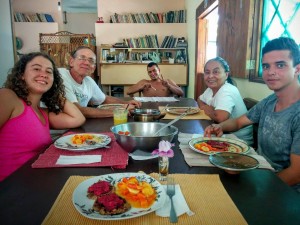
Me, Ed, Eric, Jessica, and Alex eating our last breakfast. Taken by Marie, a fellow student taking the Tropical Medicinal Plant course.
This is a culmination of my notes reflecting what I learned from my first week taking the Tropical Medicinal Plant Course at New Dawn Educational Center in San Isidro del General, Costa Rica. The teacher of the course is named Ed Bernhardt, and he has written four books, Natural Health Care Guide for Tropical Living, Tropical Medicinal Plants in Costa Rica, Huertas Naturales, and The Costa Rican Organic Home Gardening Guide. He is a graduate of naturopathy and botany, and moved to Costa Rica more then 30 years ago. For about 5 years he worked alongside a native Costa Rican of indigenous heritage, who showed him his use of plants. Since then he has done extensive research on tropical medicinal plants and folklore of these plants, healing people and teaching students.
A book that inspired Ed to venture down the path of healing was The Handbook to High Conciousness by Ken Kease, and creative psychology.
Superior medicine prevents disease, mediocre medicine treats the symptoms, inferior medicine alleviates the pain. – Chinese proverb
We have to realize we have to be responsible for our health, and not use authoritarian medicine.
In the 1950s there was a huge diet revolution, and people we taking different approached inspired by eastern medicine. The Rodell Institute was founded on biological agriculture.
Medicine is looking into the internal garden to see whats growing.
When working with people be objective, see whats behind and whats going on to overcome lower level emotions.
Ed learned a lot from the Natural Herbarium in San Jose, Costa Rica.
PLANTS
Indio Desnudo- naked Indian tree
The bark is cooked into a tea, it is used as an emergency medicine for diarrhea, fever. Tastes very bitter, grows allover South, Central America. Wouldn’t want to take everyday, could hurt the liver.
Pau d Arco- tree
Grows Southern USA to South America, and is known among Indians. Inner bark is used to make teas, and is very magical. Used to cure leukemia, cancer, and immune system booster. It has a long history of curing almost all organs in the body. There are 18 organic compounds that are active medicine. This is one of the main ingredients in all of the formulas Ed makes for his patients.
Hombre Grande- tree
An emergency medicine for infections, and is one of the most bitter teas. A tea made out of the wood is very popular in Costa Rica. There are many bitter alkaloids.
Aloe Vera
Superstar! From northern Africa, adapted well, contains many yellow bitter alkaloids. Great for all skin problems, fungus growth, scars, burns, is a intestinal cleanser when taken internally.
Friar Romano Aloe Cure
Friar Romano was from Basil, and entered the Benedictine Catholic Church. He was sent to Bethlehem, which is home of Aloe plant, and was used by Arabian cultures for centuries.
-2 large aloe leaves, cleaned, spin cut with skin. – 3tbls alcohol of 30 percent. -1.5 bottle of pure honey.
Blend it together and strain to get a medicinal honey.
He would give it to people for free, and recommended 1 or 2 tbsp before each meal, three times a day, for 10 days, then break for 10 days. It acts as a natural chemotherapy, for arthritis and rheumatism, as well as diabetes.
It is also great for massage work and body work because it absorbs quickly, and contains saccarides that the body can use for building.
Poultice-
-blend aloe leaf- 1 ginger root- 1 turmeric root
blend to make into a paste and apply to injured joint. Ginger is analgesic and a pain killer, and turmeric is anti-inflammatory.
Most products made from Aloe are made from powdered aloe.
Aloe with citrus and lemon is good for congestion, and comfrey roots when dried and powdered acts just like aloe.
THE MAGICAL NEW DAWN TONIC TEA
turmeric, pau d arco, ginger
NEW DAWN CEREBRIAL TEA
turmeric, pau d arco, ginger, gotu kola
Parsely
Roots are great for urinary tract, kidneys and bladder.
Garlic and Onions
Bacterial and fungal infections.
Rosemary
Lungs and scalp.
Tee La
Native plant, similar to Linden flower. Used as a sedative and for sleep.
Lypia Graviolis
Like oregano, in the mint family. Antiseptic, fungal infections, lung problems, stomach problems.
Noni
Sacred to Polynesian people. Skin infections when not completely ripe. Diabetes, arthritis, chronic ailments, age.
Sugarcane
Contains minerals
Juanilama
Lypia, like oregano, mildly sedative, digestive aid.
Cilantro- Culantro
Blood purifier, free radical scavenger, releases toxins, high in antioxidants. Used for 1,000s of years, from Mediterranean region, grows well in cooler mountains.
Dwarf Poinciana
Same family as Senna, strong laxative.
Orange
Leaves and rind made into tea is digestive aid and mild sedative.
Zorillo
Guardian of the rain forest, skin problems, tea used as skin rinse.
Neem
Not grown so well in tropics, needs white alkaline soils. Leaves heal gums and teeth, seeds are natural insecticide.
Turmeric
Liver re-generator, arthritis rheumatism, reduces swelling, beta carotene, vitamin A in body, prevents cancer.
Ginger
Universal medicine, cures all body functions, sinus, throat, heart, lungs, cardiovascular, stomach. Is an intelligent plant, cures liver, kidneys, and is aphrodisiac. Externally cures bruises, sprains, strains. In traditional Chinese medicine half of recipes are with ginger. It is a catalyst, which means its better with other herbs. Careful using ginger with red heads and people with fair skin because it may be too fiery.
Guacimo
The inner bark when soaked in water is like aloe, and is analogous to slippery elm.
“Happy mind is the best medicine.” Chinese proverb
Winged Leaf Quassia- tree
Many of the trees are gone because people used it for building pallets. Called dysentery tree, used for amoebas, bacteria’s, cholera and has lots of medicinal potential, as well as a food.
Achote-Annato
Natural dye for red or orange. Similar actions to turmeric.
Avocado
Many good saturated fats, and leaves were used by settlers for colds and flu’s, but its not the best for that.
Artemsia
From the Mediterranean, used for internal parasites and worms. Grows better in cooler highlands of Costa Rica, and can give secondary effects like nausea and vomiting.
Garlic
Prevents disease, circulatory health, high blood pressure, coronary insufficiency, capacity to rid plaque in blood vessels, parasites, viruses, loses potency when cooked. Can make tea from cloves when sick. Can slice and put on molds and warts.
Basil
Digestive, immune booster.
Feverfew
Similar to chamomile, contains bitter alkaloids, used for fevers, menopause. Used fresh relieves migraines, more powerful eating it raw. People with migraines should have some growing in house.
Hibiscus
Leaves and flowers are edible. Expectorant, digestion. Used after birth as a tea to release placenta.
Wormseed
Rids of certain worms, common to use for children.
Arnica
Many types, for stiff muscles.
Borage
Related to comfrey, contains many nutrients, minerals, colds, flue, fever.
Spiral Flag
Stalk contains a juice, can put stalk in water and drink the water- relieves kidney stones, diuretic, water retention.
Pink Shower Tree
Similar to Carob, chocolate like taste.
Chili-Cayenne
Anti-bacterial agents, preservative, protects from unwanted bacteria.
Citrus
Digestion, calms nerves.
Coconut
Good saturated fats, hydrating.
Dandelion
Best medicine from Europe. Roots cure almost everything.
Chickory
Tastes like coffee, young leaves are edible.
Mimosa
Sedative-leaves. Grows everywhere in Costa Rica.
Echinacea
Origins in plains of North America, natives used it for rattlesnake bites. Takes 3 years to get strong roots. Colds, flu’s, immune system, infections, high white blood count, low red blood count, a cure all, great mixed with goldenseal.
Root Beer Plant
Similar to sassafras in oil. Crystallized resin of plant was first discovered MDMA. Make into tea used for headaches, gargle for soar throat.
Eucalyptus
Upper respiratory infections. Can add fresh leaves to a pot of water, boil, and breath in the steam.
Gavilana
Contains yellow bitter alkaloids. Tea works for colds and flu’s, skin problems, and great for getting rid of tics.
Gotu Kola
Originally from Asia. Helps memory loss, increases circulation, insomnia, cardio tonic, maintains vitality. Impotency for men, and great for elderly women.
Passion Flower
Similar to valerian of North America. The leaves are a powerful sedative, great for emotional crisis.
Guava
In the fruit are substances that help to build collagen, and improves collagen in the body. Leaves are high in tannin’s.
Coconut Oil also builds collagen.
Spearmint
Great for the stomach and nerves. Good for everyday use.
Trey Discantia- Wandering Jew
Stops bleeding and hemorrhaging. A mash of the leaves can be applied to wounds, or the mashed leaves can be soaked in water overnight to make a drink.
Yucca
Part of the agave family. Flowers are edible. In the stem are saffonin’s, which is a natural soap. Used as a remedy for arthritis and rheumatism. When the leaves are heated they turn into a good binding agent.
Polk-Poke
Poisonous, and common. Can be made into a hair rinse to kill lice.
Lengua de la Suengra- Sansaveria
Antiviral qualities. Farmers chopped a bit and put into water to avoid contracting avian flu.
Plantain
Liver cure. Syllium seeds aid constipation.
Rat Killer Tree- Madre de Cacao
Planted with cacao creates a symbiotic relationship. The leaves were used to make beds because they would keep the fleas away. Flowers are edible, and when cooked with corn that was stored it would kill the rats that tried to eat the corn.
Rose Periwinkle
From Madagascar, and used for centuries as a medicine. Cannot use fresh plant. Two compounds have been found to treat leukemia.
Yarrow
Found all over the world, and is sacred by the Chinese. Contains bitter alkaloids, and is great for recuperating from surgery and for children diseases.
Stinging Nettle
Extremely nutritious.
Papaya
High in vitamin A. Contains papain which digests proteins, so is good to eat with meat. Aids constipation. Can rub the skin onto the skin, and seeds are used to treat parasites, but overused can cause sterility in men.
Corn Silk
Dried is great for kidneys.
Rosemary
Oil is great for massages because it is a lymphatic cleanser.
Sage
Mint family, great for lungs, heart, digestion, and is considered sacred by many.
Ringworm Bush
Leaves are good for fungal infections, and a tincture treats skin problems.
Elderberry
Contains yellow bitter alkaloids. Great for fevers, flu’s, and chronic infections.
Targua
Bleeds when the plant is cut, good for infections.
Thyme
Oil is used to treat skin and gum infections, and improves heart circulation.
Sarsparilla
Can create root beer, blood purifier, anemia, helps impotency, popular with indigenous peoples.
Preparations
Harvesting
Between 8am-10am is best to harvest leafy greens, such as gotu kola and lemongrass. Old saying is harvest them “when the birds sing.”
Only pick best leaves when making medicine. Shamans often begin saying prayers when they harvest.
Many people follow lunar schedules when harvesting. Some think the full moon is better because there are more fluids inside the plants due to the tremendous gravitational pull. Some think new moon is best because the plants are dryer, and perennial plants will not bleed as much. Ed harvests during the new moon.
Best time to harvest roots is in the fall, when they are full of vital fluids waiting for the rains of winter.
Drying
Leafy herbal plants cannot be dried in full sun because many properties can be destroyed and burned. They need dark, hot spaces with air movement to dry properly.
Roots and barks can dry in full sun, and must be completely dry in three days, or else can start to ferment. When ginger and turmeric are dried they have certain properties that they don’t have when raw, and vice versa. Consuming some raw and some cooked is best.
Flowers act more like leafy greens, need dark, hot, and airy spaces.
Nuts can usually dry in full sun, and can take longer then three days.
Masseration
Chewing, mortar and pastel, blender, grind, juicing.
Soaking
Common among indigenous, and is often used ritualistically. They use soaks to wash people down to cleanse, can make aqueous extracts.
Sun Tea
Pure water with herbs placed in the sun for a few hours. Some people put tin foil over glass as to not burn herbs with the solar rays.
Infusions
Basically speeds up process. You can simmer or boil, and the heat sterilizes.
Decoction
When herbs are boiled for awhile, the medicinal qualities of the herbs are transferred into the water. Its good to blend roots and bark into a fine powder to it takes less heat to transfer medicine.
Concentrations
Can make a great cough syrup using ginger, turmeric and wild cherry bark. Uses low volume of water which preserves. Can be used for cremes, body work, essence preserves for a certain period of time.
Oil Extracts
Usually used with coconut or olive oil, can infuse other oils into the carrier oil. In traditional Chinese medicine they use grated ginger, peanut oil, sesame oil, or coconut oil. Shake it every day for 10 days then strain out the ginger. Need to keep oil extracts refrigerated.
Essential Oils
Needs to be distilled. Often promotes mono culture because need usually about 100lbs of plants to produce one bottle of essential oil. Some products are diluted with alcohol.
Can put hard to take herbs in capsules like garlic or cayenne.
Tincture
Use 30% alcohol, we added about 60g of powder to 1 liter of alcohol. Formula contained 6 parts pau’d arco, 3 parts ginger, and 1 part turmeric. Using a powder is stronger then leaves. If using powder fill 1/5 of the container with alcohol, and if using leaves fill the container 1/2 full of leaves.
Shake the bottle everyday for 10 days, then can start using.
Herbs from the Northern Hemisphere
Alfalfa
Used as animal feed, very nutritious, can make an inexpensive tea. Also can eat alfalfa sprouts.
Ashwaganda
Similar to ginseng, great for vitality, energy, stress, use dried roots.
Astralagus
Colds and flus.
Black Cohosh
Women’s herb, used to tonify uterus and regulate periods, and period pains. Not to use during pregnancy.
Blessed Thistle
Stomach tonic.
Blue Cohosh
Used for pregnant women when birthing because stimulates contraction. Contains phytochemicals that stimulate oxitosin, but need to be a experienced herbalist to use wisely.
Burdock
Found all over the world. Roots prevent cancer and detoxify skin.
Calendula
Skin rashes, great mixed with arnica for wounds or bruises.
Cayenne
Circulation.
Celery
Seeds contain oil that cure inflammation, kidney problems, reduces uric acid levels when there is too much acid.
Chickweed
Edible, dried for nutritive tea.
Dong Quai
Women’s herb, great for menstrual difficulties, PMS, makes uterus healthier, is a tonic- build bodies strength.
Evening Primrose
Makes good essential oil, contains essential fatty acids, allergies and eczema.
Eyebright
Eyes, make a tea to put on the eyes. Chamomile also is good for sties.
Fennel
Stomach, indigestion.
Fenugreek
Tea is great for stomach, is nutritive.
Flax Seeds
Makes a linen. Flax seed oil contains component that kills cancer cells, natural laxative, never heat the oil. Great nutritional supplement, amino acids contained in seeds.
Gingko- tree
Survived from Cenozoic age, which means it is extremely resistant to pollution. Often planted along highways. Opens up capillaries in blood vessels, so helps to think and exercise better. Also aids in age related memory loss and circulation.
Ginseng
Yang herb. Famous in Traditional Chinese Medicine. Looks like human figure, builds stamina, fatigue, concentration, performance, athletics.
Goldenseal
Similar benefits to dandelion. It is on the brink of extinction because so many people started harvesting at once. Common with echinacea.
Grapeseed Oil
Varicose veins, circulatory.
Hawthorn
Made into herbal tea used as a heart tonic.
Hops
Sleep herb.
Horsetail
Found all over the world, and is from the dinosaur age. Full of minerals, has lots of silica for hair and nails. Is a diuretic for kidney problems.
Kudzu
Bean family, very invasive. Big roots can be made into a tea that’s great for alcoholics. Once you drink the tea, the flavor of alcohol becomes disagreeable.
Lemon Balm
Digestive
Licorice
Roots can be chewed to aid digestion, balance blood sugar levels. Tea is good with children for coughs and congestion.
Marshmallow
Mucilaginous plant, aids congestion and soar throat.
Milk Thistle
Seeds are used as a liver regenerative, as is one of the best for this.
Mullein
Helps smokers quit by smoking the herb.
Psyllium
Is a cereal can add to salads, prevents constipation, unfortunately most of the products contain sugar.
Raspberry Leaves
Great as a relaxant for pregnant women who don’t want to use many herbs.
Red Clover
Cancer treatment and source of estrogen.
Reishi
Immune stimulator, calms anxiety, overall tonic, very sacred mushroom.
Saw Palmetto
Great for prostate in men. Tea reduces swelling.
Senna
Laxative
Skullcap
Sedative
Slipper Elm
Similar to aloe and is mucilaginous. Becoming endangered.
St. Johns Wort
Depression
Tea Tree
Antiseptic
Valerian
Super sedative. A tincture treats insomnia and anxiety.
Vitex
Women’s herb, treats menopause.
White Oak
A tea treats skin infections and soar throat.
Willow
Contains salex, which aspirin is derived from. Leaves treat headaches.
Yellow Dock
Similar to dandelion and goldenseal, a great cure all. Blood purifier, and leaves are edible in spring.
When making a formula, it is important to have the right balance of uses. This is an easy way to categorize plants to that we make sure we are getting a balance. Most plants fall somewhere in between the nutrifier, cleanser, and tonic.
Tonics
Tonics are the hero’s that help us win the battle of illness. They strengthen the body and organs. Usually when making a formula, you half or more is made with tonics.
Cleansers
Cleansers are plants that help us rid the body of waste and clean the lymphatic system. Laxatives are cleansers of the intestinal tract.
Nutrifiers
Nutrifiers give the body more nutrients, vitamins and minerals.
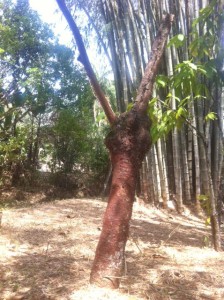
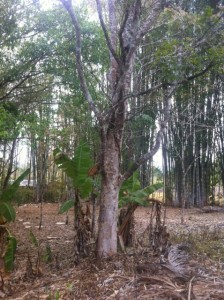
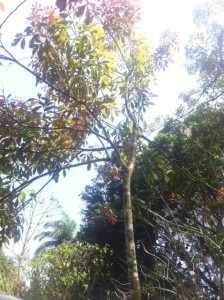
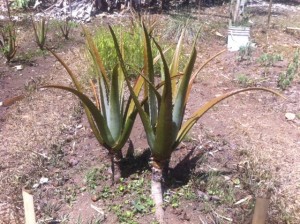
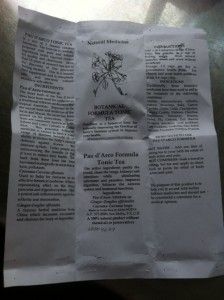
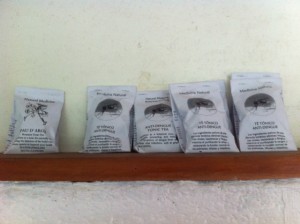
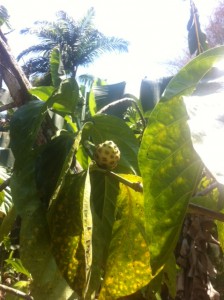
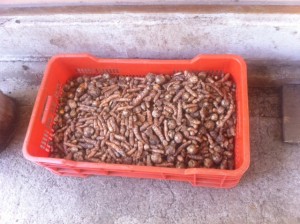
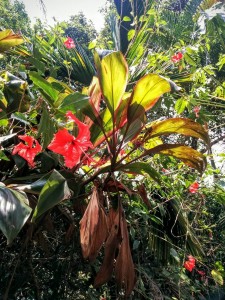
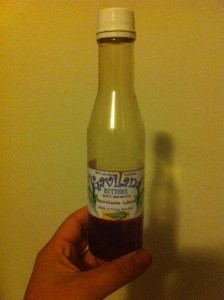
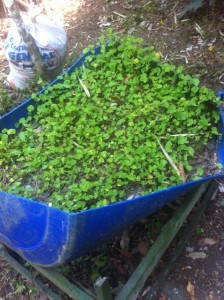
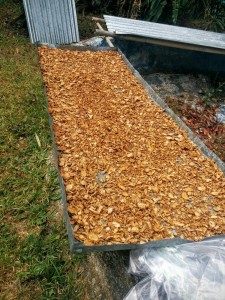
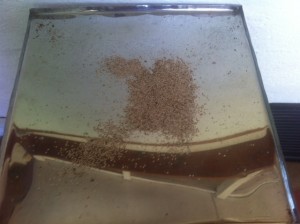
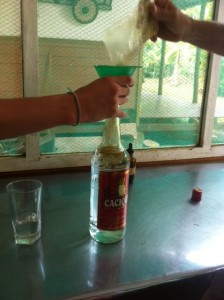
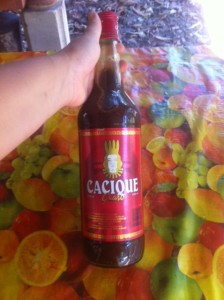
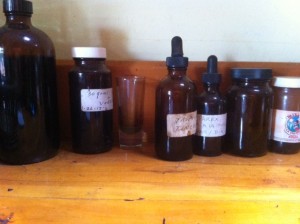

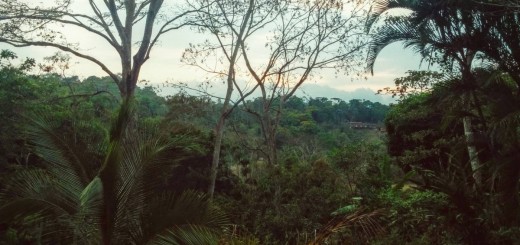
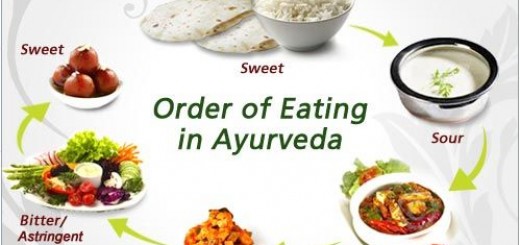
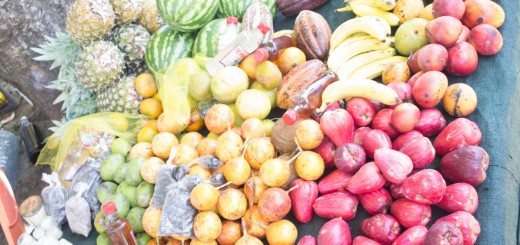
Recent Comments